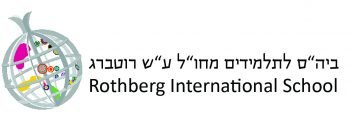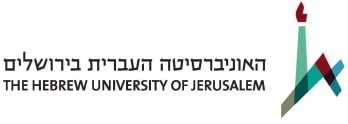Highlights
- Join the new excavations in the largest and most important oasis along the western coast of the Dead Sea
- Dig Biblical-era (Iron Age and Persian Period) remains of the major Judahite economic hub in the Judean Desert
- Uncover remains related to the famous ancient perfume industry of the Deas Sea region
- Learn and gain experience in archaeological field methods and participate in onsite post-excavation activities
The new Hebrew University research project in the En-Gedi Oasis (2025–2029) revolves around the occupational history and economy of the most important Dead Sea oasis during the first millennium BCE. The project is focused at Tel Goren, the location of Biblical En-Gedi, and combines excavations in new areas of the site as well as reinvestigation of previously-explored sections. Our aim is to delineate the stratigraphic, architectural and material-cultural changes in En-Gedi between the 7th and 3rd centuries BCE and analyze their implications with regard to regional economic, social and geopolitical dynamics.
The 2026 season will focus on the sixth century BCE – a period of significant transitions following the destruction of the Iron Age Kingdom of Judah in 586 BCE. We will look for remains from this turbulent era in three areas of the mound, all associated with peculiar industrial installations and accumulations rich in material and biological remains.
Structure
The season is three weeks long, with a possible extension to a fourth week open to students only. Daily work at the site starts at 8:00 a.m. and lasts until 15:30 p.m., Sunday through Thursday, with additional work assignments and activities in the afternoon and evening.
Course Components
- Field training in all aspects of archaeological fieldwork (digging, registration, sieving, sampling, surveying, etc.)
- Afternoon activities, including washing and sorting of finds and other remains
- Lectures
- Research paper
This course is open to undergraduate and graduate students, as well as to mature learners with an academic background. You should be currently registered at or have been accepted to a recognized college or university, or have successfully completed at least one year of study at an accredited institution of higher education. English-language fluency is also required.
Apply
You can choose to participate in the excavation for the field experience only, or you can decide to also earn credit from Hebrew University during your participation (and transfer the credits to your home institution). The application process differs according to your choice.
Participation Only
You’ll apply directly to the En-Gedi Oasis Field School. Please see the En-Gedi Oasis excavation website for details on how to apply: Website
Participation & Academic Credit
In order to apply to earn academic credit for your participation in the archaeological field school, you’ll complete a three-step process:
- Apply directly to the En-Gedi Oasis Field School. Please see the En-Gedi Oasis excavation website for details on how to apply : https://www.en-gedi-huji.com/2026-season
- Attend the excavation and fulfill the academic requirements as determined by the director of your archaeological field school.
- Once you have finished the field school and submitted a research paper, submit an application to Hebrew University’s Rothberg International School (RIS) and pay the US$ 120 application fee and the US$ 120 per credit tuition fee.
Contact
We’re happy to answer any questions you might have.
Questions about En-Gedi Oasis – Tel Goren
For questions about applying directly to the field school – or any questions about the program – please contact Uri Davidovich.
Questions about Academic Credit
For questions about applying for academic credit through HebrewU’s RIS, please contac the Office of Summer Courses and Special Programs.
Find More Summer Courses
Please note that HebrewU reserves the right to cancel courses for which there is insufficient registration.
Fast Facts
Course:
En-Gedi Oasis archaeological field school
Teaching Faculty:
Humanities
Language of Instruction:
English
Credits:
1 per week (max 4 credits)
Program Dates:
18.1.2026 – 5.2.2026 (with possible extension to 12.2.2026)
Eligibility:
Open to all degrees
Costs:
Academic Credit (Optional): US$ 120 per credit
** excavation fee will be paid separately to the excavation expedition

